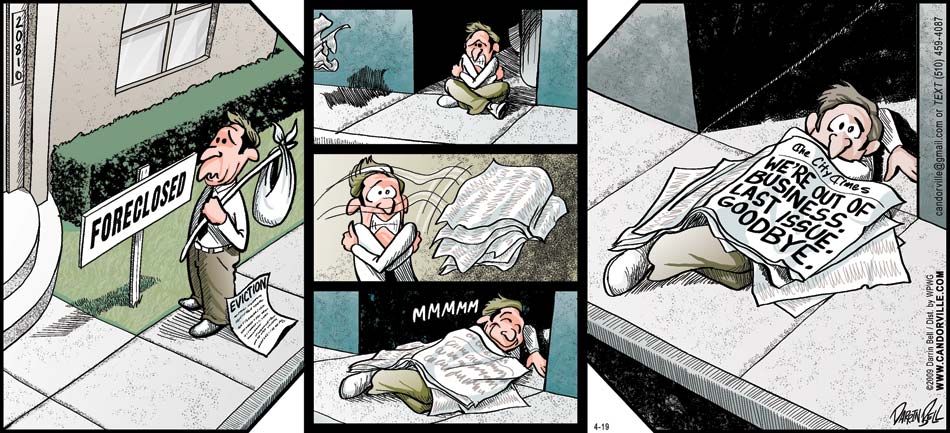It's been almost two years ago since I graduated, two years ago since I wrote "the nervous feeling that it’s going to be a long time before I find another paper that will be able to make me cry and laugh."
In the last month, this blog has been dominated by my sappy, unhelpful cries to save the Boston Globe. I have a post in the works about my actual critiques of that newspaper and the role it could and should play. But for now, a quick reflection that while the Boston Globe has yet to make me laugh the same way my college newspaper did, it certainly has made me cry.
Last week my friend sent me this excerpt from a column on ESPN.com.
For the past few years, as newspapers got slowly crushed by myriad factors, a phalanx of top writers and editors fled for the greener pastures of the Internet. The quality of nearly every paper suffered, as did morale. Just two weeks ago, reports surfaced that the New York Times Company (which owns the Globe) was demanding $20 million in union concessions or it'd shut down the Globe completely. I grew up dreaming of writing a sports column for the Globe; now the paper might be gone before I turn 40. It's inconceivable.
My eyes heated. And I told him. I can't read this. I can't read anything about the death of newspapers, the death of the Boston Globe.
I too have dreamed about working for the Boston Globe, at least since I was ten. There were other internships I really wanted: I really wanted to work for the Washington Post, I really wanted to work for the Cleveland Plain Dealer, but when the recruitment editor from the Boston Globe called me to tell me I didn't get the internship I wanted there, I sat on my bed in my college dorm and cried. When I got the official e-mail a month later, I cried again. Every time I imagine the idea that I will never get the chance to apply for a job at let alone work for my hometown newspaper, I worry I will cry again.
At my parent's house outside of Boston, I had flashbacks when I picked up the paper at Walgreen's (annoyed that my parents have chosen the Times). Alex Beam's column is the first newspaper column I read. The first thing outside of the comics and Student Page. I was floored when I met his son, but I only realized this week how much the senior Beam's column was part of my Globe reading experience, which was in turn part of the beginning of my love affair with newspapers. My official narrative about realizing I had become a metro reporter with the quirks and passion that comes with it, has nothing to do with the Globe, it has to do with my amazing college city editors. But I realize now that the metro reporting at the Globe, which I still respect and admire, was part of my inspiration and push towards the city section of my college newspaper.
I used to believe that the first newspaper I had a hand in editing would be the only one to make me cry. Now I know, it's the first newspaper I read that can have a similar effect. I believe in the importance of hometown newspapers.

I too have dreamed about working for the Boston Globe, at least since I was ten. There were other internships I really wanted: I really wanted to work for the Washington Post, I really wanted to work for the Cleveland Plain Dealer, but when the recruitment editor from the Boston Globe called me to tell me I didn't get the internship I wanted there, I sat on my bed in my college dorm and cried. When I got the official e-mail a month later, I cried again. Every time I imagine the idea that I will never get the chance to apply for a job at let alone work for my hometown newspaper, I worry I will cry again.
At my parent's house outside of Boston, I had flashbacks when I picked up the paper at Walgreen's (annoyed that my parents have chosen the Times). Alex Beam's column is the first newspaper column I read. The first thing outside of the comics and Student Page. I was floored when I met his son, but I only realized this week how much the senior Beam's column was part of my Globe reading experience, which was in turn part of the beginning of my love affair with newspapers. My official narrative about realizing I had become a metro reporter with the quirks and passion that comes with it, has nothing to do with the Globe, it has to do with my amazing college city editors. But I realize now that the metro reporting at the Globe, which I still respect and admire, was part of my inspiration and push towards the city section of my college newspaper.
I used to believe that the first newspaper I had a hand in editing would be the only one to make me cry. Now I know, it's the first newspaper I read that can have a similar effect. I believe in the importance of hometown newspapers.
---
Another take on dying newspapers from the comic, Candorville:









